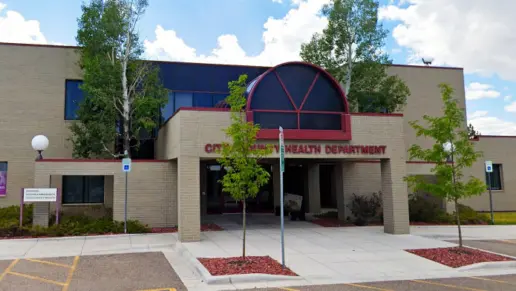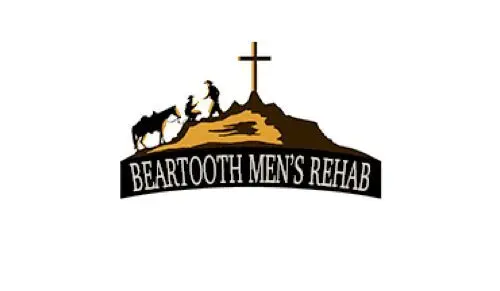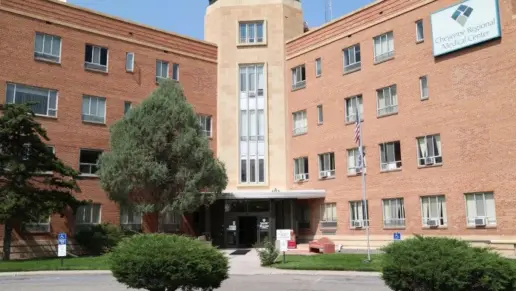About Beartooth Men’s Rehab
Beartooth Men’s Rehab, in Powell, Wyoming, is a faith-based, long-term residential drug and alcohol rehab for young adult men between the ages of 18 and 30. They provide specialized programming for justice-involved persons and men with co-occurring addiction and mental, emotional, or behavioral disorders. Located on a working cattle ranch, their treatment modalities include psychotherapy, equine therapy, reality therapy, and life-skills training.
Beartooth Men’s Rehab offers faith-based addiction recovery services for young adult men between the ages of 18 and 30 in Powell, Wyoming. Located on a working cattle ranch, their long-term residential treatment program combines intensive psychotherapy with reality and nature therapy, spiritual development, and recovery-focused life skills training. Specialized programming is available for justice-involved clients and those with co-occurring disorders. They accept self-pay.
Residential Program
The long-term residential program allows clients to focus on their recovery in a highly structured and supportive environment. Clients engage in intensive, CBT-based individual, group, and family counseling. They also participate fully in the day-to-day operations of the ranch, encompassing a wide array of therapeutic modalities, including equine, nature, reality, and experiential therapies. The program promotes clients’ sustained sobriety and successful reintegration into their home, workplace, and community through extensive recovery-focused life skills training addressing topics such as coping, self-care, wellness, anger and stress management, conflict resolution, decision making, emotional regulation, and relapse prevention. Daily prayer and Bible study are emphasized as a cornerstone of physical, mental, and spiritual healing.
Aftercare Services
Their aftercare services ensure a complete continuum of care aligned with clients’ evolving needs and may include peer coaching and referrals for medical, mental health, and social service programs.
Rehab Score
Gallery
Location
Other Forms of Payment
Self-pay involves paying for treatment out of your own pocket. You can use savings or credit, get a personal loan, or receive help from family and friends to fund your treatment. If you don't have insurance or your insurance plan doesn't cover a specific program, self-pay can help ensure you still get the care you need.
Addiction Treatments
Levels of Care
Treatments
The goal of treatment for alcoholism is abstinence. Those with poor social support, poor motivation, or psychiatric disorders tend to relapse within a few years of treatment. For these people, success is measured by longer periods of abstinence, reduced use of alcohol, better health, and improved social functioning. Recovery and Maintenance are usually based on 12 step programs and AA meetings.
The programs offered at drug rehab in Wyoming address the underlying issues of addiction, with the goal being to get to the root of the problem. By learning to manage issues without substance use, you are empowered to live a healthy, drug-free life.
Mental health rehabs focus on helping individuals recover from mental illnesses like bipolar disorder, clinical depression, anxiety disorders, schizophrenia, and more. Mental health professionals at these facilities are trained to understand and treat mental health issues, both in individual and group settings.
Substance rehabs focus on helping individuals recover from substance abuse, including alcohol and drug addiction (both illegal and prescription drugs). They often include the opportunity to engage in both individual as well as group therapy.
Programs

Clinical Services
Equine therapy, aka equine-assisted therapy (EAT), is a form of experiential therapy that involves interactions and activities with horses. It does not necessarily involve riding horses, but all activities related to horses, such as feeding, grooming, haltering and leading them. A mental health professional frequently oversees the activities (often in conjunction with a horse professional), and helps patients process their thoughts, feelings, and behavior patterns during and/or after the interaction.
Experiential therapy is a form of therapy in which clients are encouraged to surface and work through subconscious issues by engaging in real-time experiences. Experiential therapy departs from traditional talk therapy by involving the body, and having clients engage in activities, movements, and physical and emotional expression. This can involve role-play or using props (which can include other people). Experiential therapy can help people process trauma, memories, and emotion quickly, deeply, and in a lasting fashion, leading to substantial and impactful healing.
Research clearly demonstrates that recovery is far more successful and sustainable when loved ones like family members participate in rehab and substance abuse treatment. Genetic factors may be at play when it comes to drug and alcohol addiction, as well as mental health issues. Family dynamics often play a critical role in addiction triggers, and if properly educated, family members can be a strong source of support when it comes to rehabilitation.
Life skills trainings involve all the skills a person must have in order to function successfully in the world. These include time management, career guidance, money management, and effective communication. Truly successful addiction recovery is based on the ability to not only live substance-free, but to thrive. Life skills teaches the practical necessities of functioning in society, which sets clients up for success in life, and therefore sobriety.
Contact Information
391 Road 1AF
Powell, WY 82435



